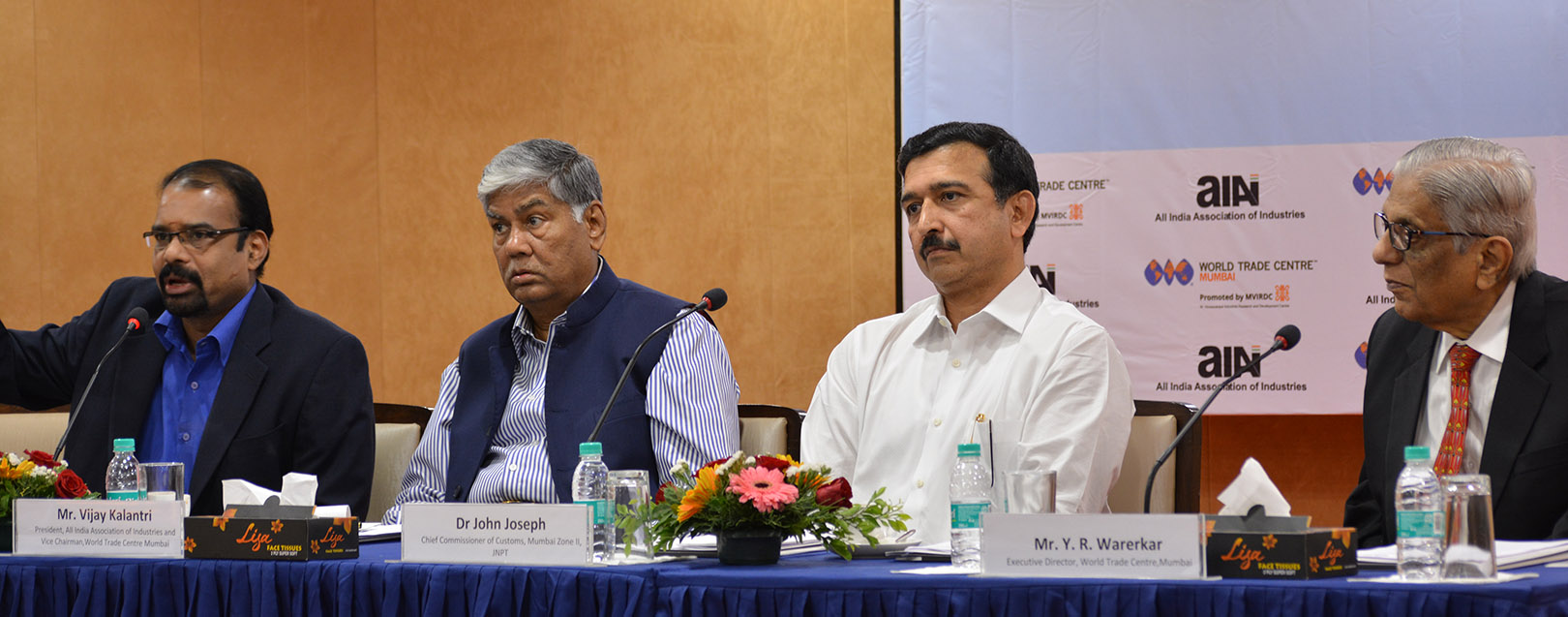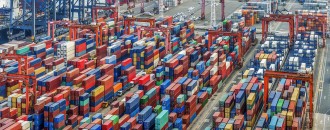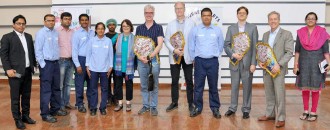
Policy and port-facility awareness a must to improve ease of doing business: JNPT Customs Commissioner
Sairaj Iyer
The customs, as a government agency is a facilitator for free trade. Better facilitation translates into better ease of doing business rank. Ease of doing business is a familiar mantra in India. The government's ebullient enthusiasm since 2014 has brought in new expectations that the new ways of doing business with ease would see a sea-change. Since then though there has been a slew of initiatives, India's ranking in the global ease of doing business has barely increased by a rank. “A World bank study on ease of doing business finds hindrances in the port ecosystem, and the awareness on port facilities meagre,” explained Dr John Joseph, Chief Commissioner of Customs, Jawaharlal Nehru Port Trust (JNPT).
Dr Joseph was speaking at the All India Organization of Industries’ open house session on customs, service tax and foreign trade. JNPT is India’s 34th largest port, contributing nearly 25% of national revenue to customs while catering to 60% of customs-cargo volume. Dr. Joseph in his speech outlined the initiatives such as Direct Port Delivery, Direct Port Exports and the digital practices at his agency. He also pointed out that though the systems are in place it is unfortunate that many businesses are unaware of the systems and the facilities that the agency offers. Such unawareness leads to delays in business, thereby escalating costs and narrowing profits.
The Commissioner explained how a short folly from a corporate biggie ended up skewing the World Bank research numbers. The World Bank study group tried analysing the speed with which products could be delivered from Korea to Mumbai and further processed. “We (customs) gave clearance in a record span time, but this large industrial MNC took almost 8 days to claim their product, which unfortunately skewed the survey results,” he said. He also pointed out that business houses blame the customs for not operating full-time, although the department is staffed only at 48% capacity. The department, in fact, loses money hiring resources, and manpower between 10:00 pm and 5:00 am when only 10-15 bills are being filed.
The Commissioner outlined the schemes that the customs department has launched like DPE (Direct Port Exports), DPD (Direct Port Delivery), adopting a CFS model and quicker clearances. Direct Port Delivery enables materials cleared in a record span of 8 hours against the previous 4-day timeline. The current DPD system is now 60% implemented and would take 1-2 days to be complete. "The Singapore port, which is 95% into Trans-shipment cargo, takes about 3-4 days. We will be able to beat Singapore with that efficiency," he said. Explaining the benefits of DPE, he pointed out, "An importer can certainly get a benefit of almost 8-10,000 rupees by utilising the DPD facility. There are many leading companies in Mumbai, but none are availing this facility. I had written to 500 CEOs in the country, mailing them the benefits that each of them could get. Of those using the facility, some have benefited to the tune of Rs. 10-15 crore."
Direct Port Delivery enables materials to be cleared in a record span of 8 hours against the previous 4-day timeline. The current DPD system at JNPT is 60% implemented and will take 1-2 days to be complete. “The Singapore port, which is 95% into Trans-shipment cargo, takes about 3-4 days. We will be able to beat Singapore with that efficiency,” he said.
The Customs commissioner urged exporters to opt for DPE as it would enable cargo clearance within 24 hours, an efficiency that even Air cargos may not offer.
The open-house also saw the participation of Dr S.K. Vimalanathan, Central Excise Commissioner for Thane; Dr Vijay Kalantri, President of the All India Association for Industries and Vice-Chairman of the World Trade Center.
While responding to a query on GST related bottlenecks, Dr Vimalanathan averred that GST related adjudications are being handled on zero mission mode, and a simpler system has been put in place to ensure unambiguous and easier tax filing process. The excise department has already implemented measures such as single window clearances, which allow for single declaration unlike previously when plants, animals, quarantine, hazardous chemicals needed to be filed separately. The DPD scheme has been enlarged to allow more importers, while the Authorized Economic Operator Scheme has been modified. “We have also offered deferred payment duty scheme,” he shared.
The house also discussed issues such as demonetization, procedures in AD code generation, EP copy, AEO schemes and other policies. Replying to a query on tax procedures, Dr Kalantri said, “Tax simplification is the need of the hour. No industry wants a cumbersome process. And quicker customs procedures will help save costs on transportation, additional taxation and help reduce overall transaction costs.”
The event was attended by over 100 participants from the industry, and Praveen Kumar, the Additional DGFT's absence did make a mark as he is reputed for his insights on cross-border and foreign trade.





